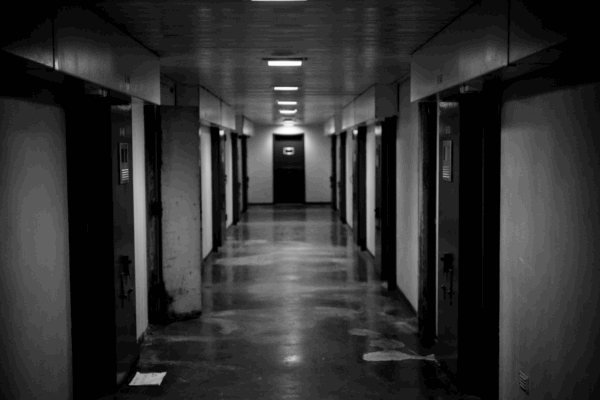By David Smith
Guest Writer
I spent 16 and a half straight months in solitary confinement in Virginia and, let me tell you, it was hell.
From the day I was sentenced on Nov. 5, 2013, until March 23, 2015, I existed in solitary. I could go days without being able to speak a word to anyone. I could go weeks between "rec time." Except for semi-weekly showers and a weekly video visit from my family I couldn't leave my cell. The only physical contact I had was being placed in handcuffs or shackles the few times I left my cell and when the deputies would throw me up against the wall while searching my cell for non-existent contraband.
The Virginia Coalition on Solitary Confinement, of which I am a member, has been formed to speak out against the use of prolonged solitary confinement because it is inhumane torture and to change the practice of using solitary confinement in our prisons and jails. Solitary confinement exacerbates mental illnesses, creates physical and mental health problems and should only be used as a confinement of last resort-not with the frequency that it is today.
Solitary confinement exacerbates mental illnesses, creates physical and mental health problems and should only be used as a confinement of last resort-not with the frequency that it is today.
I was in solitary “for my own protection” without regard to the harm that was happening to me each day I was in solitary. I saw men who were in solitary because they claimed to be spies, had run away from a police officer, or were mentally disturbed and the staff didn’t know what else to do with them. I saw men thrown in solitary for gambling or possession of contraband. (What was this dangerous contraband? He had a bag full of stamps.)
We have no idea how many people are being held in solitary in Virginia prisons, local or regional jails, or how it is being used because data isn’t being collected and made available to the public. We don’t know how many people have committed suicide in solitary because of the mental anguish total isolation causes. We don’t know how many people are released from prison or jail into society directly from solitary. Solitary confinement is overused and under-regulated in Virginia.
The Virginia Coalition on Solitary Confinement and its partners, including the ACLU of Virginia, are working to bring accountability and change to the destructive practice of solitary confinement. With the lack of knowledge we have on the use of solitary confinement in Virginia, it’s difficult to see how bad the situation is but there is hope.
Del. Patrick Hope of Alexandria has introduced HB795 on our behalf in this year’s General Assembly. This bill defines solitary confinement as being isolated in your cell for more than 20 hours a day, bars the use of solitary on vulnerable populations, limits the use of solitary confinement to no more than 15 consecutive days and no more than 20 in a 60 day period, requires training for Department of Corrections staff so they know the mental damage solitary confinement causes and how to recognize signs of mental illness. It also requires reporting on the use of solitary confinement so we can begin to grasp the enormity of the problem we face.
Our advocacy work can only cause so much change. We need your help, too. Please contact your delegate in the Virginia legislature and telling them your support HB795. You can help us bring change and accountability to the Department of Corrections’ destructive practice of solitary confinement.
This guest blog reflects the writer's views and not necessarily those of the ACLU of Virginia.

